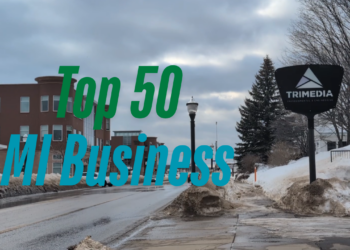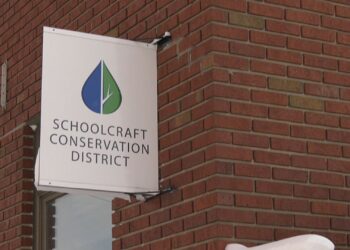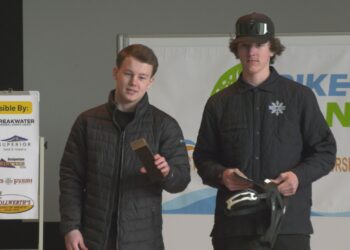IRON MOUNTAIN, Mich. (WZMQ) – In a remarkable achievement, the Oscar G. Johnson VA Medical Center (OGJVAMC) has exceeded expectations by housing 60 homeless Veterans, surpassing its local goal by over 42%. Nationwide, the VA has housed 46,552 Veterans, exceeding its goal by more than 22.5%. Dr. John P. Shealey, OGJVAMC Medical Center Director, attributes this success to the dedication of staff, grantees, contractors, and community partners.
Andrew Tomlinson, LMSW, the HUD-VASH Program service coordinator for OGJVAMC, sheds light on the program’s collaborative efforts: “HUD-VASH is a collaborative program between the Department of Housing and Urban Development (HUD) and the VA. We provide housing vouchers, while the VA offers community-based case management and clinical services.”
“We have 60 people in 2023 between ourselves and ourselves and SSVF, which is the supportive services for veteran families, and that’s a grant foundation that is paid for by the VA and that is administered through community action Marquette,” informed Tomlinson.
Tomlinson emphasizes the importance of the housing-first approach: “Housing first means that before we do anything else, we’re going to put somebody in a house, and we’re going to do that because it takes them off the street. It meets their needs. It puts them into a place of stability and, selfishly, it gives us a way to find them. We find that once we put people in houses we can go, and we can meet with them weekly. We can get them hooked up with different services and into different clinics. We can build those bridges back to the VA and back to a clinical setting that is going to allow people to rejoin society.”
The catchment area served by OGJVAMC’s HUD-VASH program is one of the largest across the entire VA healthcare system. Tomlinson highlights the program’s commitment to serving the entire area, including remote regions like Sault Ste. Marie, Ironwood, Houghton, and more. “What’s also unique about our program is a lot of VA’s only serve vouchers and provide housing within a certain area. Within the hospital, usually like 50 miles. We made a choice a long time ago that we serve our entire catchment area,” he shared.
Despite challenges such as the pandemic-induced housing shortage in the Upper Peninsula, OGJVAMC remains proactive. “We’ve requested additional vouchers to help more Veterans attain and retain safe, affordable housing,” Tomlinson explained. “Our goal is to continue our highly effective program and address the growing need for housing assistance.”
Tomlinson underscores the hidden nature of homelessness in the Upper Peninsula: “Homelessness [in the U.P.] is unfortunately hard to see, and so when they go out and count homeless people, they do this thing called a point in time count. They go out and they basically on a certain night in January MSHDA through HUD will go out, and they’ll try to identify every single homeless person that they can everywhere. The problem is it is cold, and we’re in the Upper Peninsula. It’s very rural and so it’s not like downstate or even like warmer climates where people are living in camps, or they’re under a bridge. Our homeless people are living in deer camps or staying with friends or staying in vehicles or out on a property or something like that. And so, we still have lots of homeless people, we just don’t see them very often,” he explained, adding “People have this belief that there’s not a lot of homeless people up here, there are a lot of homeless people up here.”
Tomlinson encourages anyone aware of a homeless Veteran to reach out: “There’s help available through the VA. By calling the national hotline, Veterans can quickly access emergency shelter and housing vouchers. We’re here to assist and ensure every Veteran receives the support they deserve.”
The National Hotline can be reached at: 1-877-4AID-VET (1-877-424-3838)









